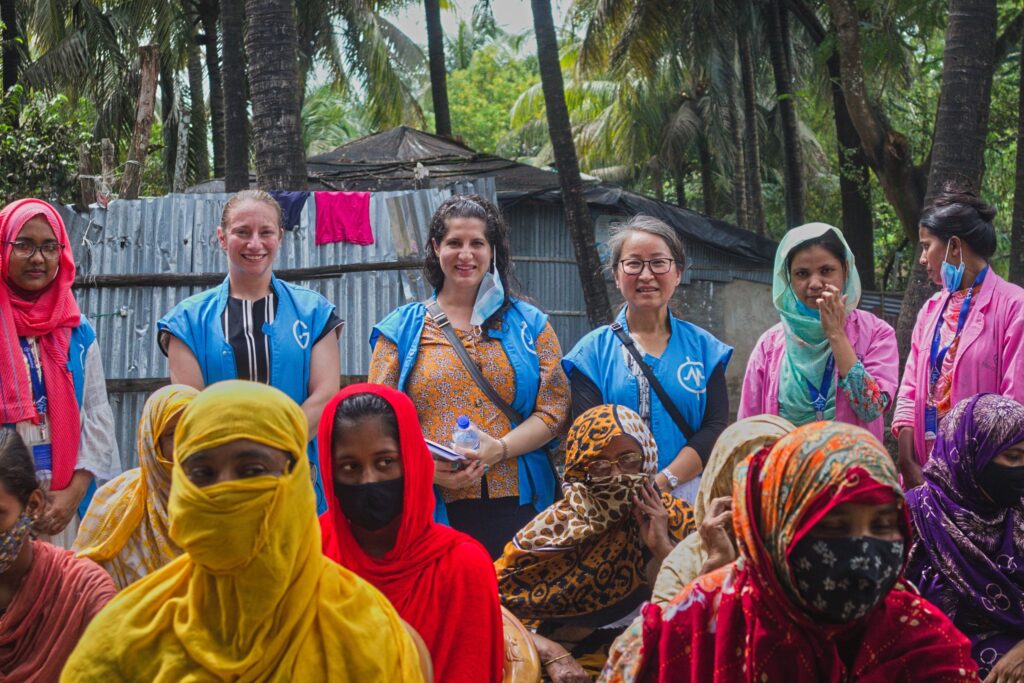Updates & Press
Uncategorized | January 28, 2023
Better Services and Education can Prevent Infant M
Author | MedGlobalComms

[vc_row][vc_column][vc_column_text]In recent years, Bangladesh has made great strides in the health indicator. But the newborn mortality rate is still alarming, 62,000 newborn deaths a year is the highest in the world.
Additionally, there are about 230 stillbirths per day, which is unacceptably high. However, difficulties during pregnancy, delivery, and postpartum result in the deaths of 5,200 mothers each year.
The majority of these fatalities result from mothers giving birth at home with untrained delivery attendants. Inadequate emergency obstetric care is another reason why mothers perish in hospitals, clinics, and health facilities.
Newborn mortality in Bangladesh is significantly impacted by the birthing system. Mothers without a high school diploma had the highest rate of newborn death.
Child birth might happen either by cesarean or non-cesarean. Over 70% of the child birth occurred at home, and just 32% of births in Bangladesh were under protected and sterile circumstances.
As of late, cesarean delivery is quite possibly the most widely recognized surgery. Cesarean segments (C-segment) are more normal among first births (12.7%), births in urban regions (15.9%), and particularly among births in the Private sector (67.3%), though the public area was 34.6%.
The majority (79%) of Bangladeshi women currently get antenatal consideration and 36% get post pregnancy care. In 2014, generally 37% of births were conveyed to casual medical facilities incorporating 22% of births in private facilities, of which a faltering 61% and 77% of births ended in CS, separately.
Various variables might impact this rising pace of CS in Bangladesh, including a high pace of adolescent pregnancy (35%), a rising pace of late-matured pregnancy (5%), improving educational and socio-economic status of mothers, and the ongoing dual nutritional(under and over nutrition) burden.
The bar graph below shows the comparison of the types of health facilities where the mothers had to deliver over the period of almost 4 years in Bangladesh. During this period, home deliveries have decreased by 12% suggesting the overall increase in institutional deliveries reflected in other bar charts.
It shows a high rise of 10% in the private facilities. The overall increase in the NGO and publicly funded health facilities are negligible, further giving incentive for elective cesarean deliveries which have been observed in various studies.[/vc_column_text][vc_single_image image=”48665″ img_size=”FULL” alignment=”center”][/vc_column][/vc_row][vc_row][vc_column][vc_column_text]The net gain in the increase can be indicative of elective cesarean deliveries which are often promoted in private facilities. This slight change in the NGO and publicly funded facilities indicates also that institutional deliveries are increased at the expense of personal funding which is a cause of major concern if we are to ensure universal health coverage. The elective cesarean also comes with undue potential health hazards for the mother. The proliferation of the healthcare market in Bangladesh which includes rural Bangladesh is the major driving factor in the increase of private sector participation.
MedGlobal recognises that the causes of newborn deaths are largely preventable in Bangladesh. In February 2021, MedGlobal opened a Maternity and Birth Center (MBC) in Somitipara, which is located 4.8 kilometers from Cox’s Bazar town in Bangladesh and is inhabited by about 40,000 internally displaced people.
They are unable to afford the cost of health services like hospitalization, transportation, and medicine and instead, seek care from traditional healers and untrained healthcare providers. As a result, in Somitipara, there are 300 maternal deaths per 100,000 births. This is alarmingly high compared to the national average mentioned above.
To support the women and newborns of Somitipara, MedGlobal provides free, high-quality care by coupling facility-based and community health services, run out of the MBC, with accessible referral mechanisms.
The MedGlobal MBC supports vulnerable pregnant and postpartum mothers with 24/7 services including antenatal and postnatal maternity care, normal vaginal deliveries, clinical counseling, medications, nutritional services, and hygiene education and supplies.
MedGlobal also trained community health workers (CHWs) to form 30 “Mothers’ Clubs,” which provide health education sessions and domiciliary level health and nutrition services. There are also referral vehicles ready for carrying emergency patients to the higher-level healthcare facilities round the clock.
The MBC is contributing to improving maternal health in Cox’s Bazar and, ultimately, to Bangladesh’s vision to reduce the maternal mortality rate according to the UN Sustainable Development Goal 3.[/vc_column_text][/vc_column][/vc_row]


